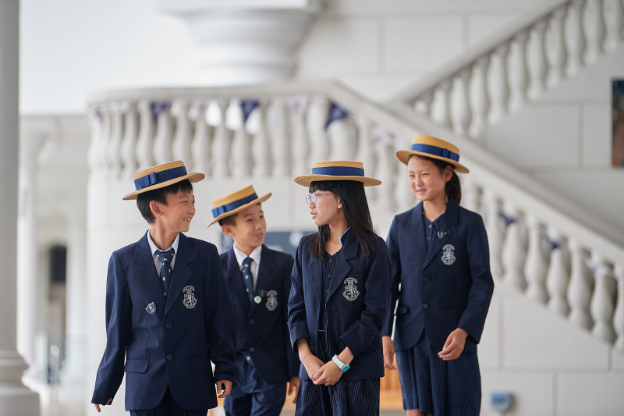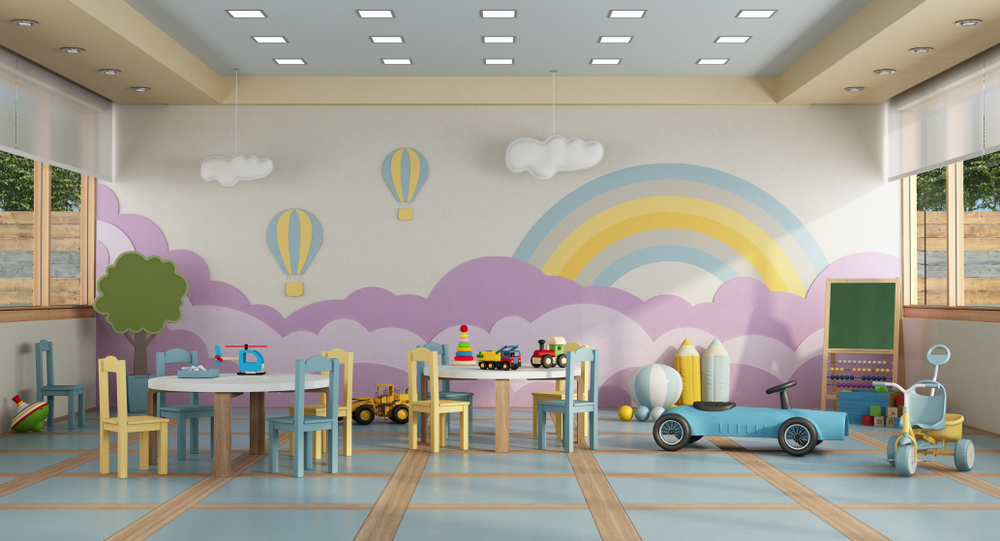I stopped giving the “Parents Evening” letter to my parents when I was fifteen. They didn’t seem to mind. My mother had enjoyed being told annually she was a good mother rather than in, my Nonna’s words, delivered with a regretful sigh, an occasionally disappointing one. But she had other adventures to live as I got older, most of my grades seemed to be fine and, well, no news was good news.
She wasn’t alone. An English teacher in the 1990s, I saw most of my pupils’ parents twice a year. The conversation would usually follow the same pattern:
“Is there anything in particular you’d like to know?”
“Is she doing her homework? Behaving in class?”
“Oh yes”
“That’s good.
I would then give them the information I wanted to pass on, push books in their direction, talk about reading and, should the child be in attendance, ask them questions about their learning, their ambitions, their reading. The conversations were (generally) warm, pleasant and affirming for everyone.
Reports went home too. Usually, one written and one almost entirely composed of numbers. In one of my schools, a very good West London comprehensive, we sent home termly reports with nothing but progress and attainment data: a sea of digits, floating on white paper, spinning in a void. Each school had its own habits and traditions, but they were united in their fundamental approach to parents: we had a duty to inform them; they were essential in supporting us when we needed their help to redirect a child’s efforts; and that was about it.
There are, of course, longer traditions of parental involvement in many schools. It wouldn’t be unusual to find active governing bodies, well-connected to the community and able to channel concerns to the school. Even in these instances, though, there would be few opportunities for parents to take a lead, or to have an active voice in areas that might be considered the domain of “experts”. In other words, parents could take the lead where they were considered to have a valid voice or energy to offer; in the classroom, though, schools were reactive. Good schools reacted positively; less responsive schools gathered under their shields, a metal tortoise to repel invaders.
In today’s international schools, our approach has to be different. In our context, with highly motivated, interested parents who have a strong emotional connection to their children’s education, we fail our children and community if we think of our parents as partners with no more to offer than playground equipment, moral support, applause and contributions to the never-ending debates about school food and uniforms. We have to build a culture of genuine engagement and ownership, offering parents the chance to share in the leadership of our curriculum, our teaching and learning, our broader curriculum, and our identity.
At Harrow Shanghai, just seven years old, we had solid foundations on which we could build. Our founding families are proud that they were here at the start of the life of the school, and we have always been a warm place with an inclusive culture. Our location, on the outskirts of the city with little local high-quality housing or community facilities (and no boarding), means that parents have to make an active, considered decision to join us, often choosing our school above more obvious destinations, many of which will have been recommended by others in their social circle. There is a desire for the school to succeed, and a genuine connection with the staff here. Pupil retention is very good; attendance at pupil events, parent information sessions and open classrooms is excellent. We have also, unlike most schools for foreign passport holders in Shanghai, always had a population weighted heavily towards children from ethnically Chinese families. I think this has helped cohesion, given the school a chance to reflect on its identity and protected it from some of the Covid-generated convulsions experienced by others in our sector.
We have used these foundations to begin to build a culture of parent leadership. We started with some simple principles:
- We want our parents to know as much as possible about what’s happening at school
- Parents want to be partners in the school’s journey: we are always positive, and we are always looking to improve, and parents want to help us. So we also don’t pretend to be something we’re not.
- Pupils do better if their parents know more
- Openness and transparency matter

From our principles follow some simple actions. Some are familiar to most good schools; others are not:
- Parent Representative meetings have continued, attended by the Head periodically, and the focus has been on learning as well as organisational matters
- We have broadened the range of PPPs (parent information sessions, of which there are around 100 over the course of the school year) to include more teachers talking about a range of topics, many of which explain teaching and learning strategies or approaches
- We use WeCom, which is essentially a school-managed version of WeChat: this year, we removed a number of controls, increasing the number of groups and making most groups two-way, enabling parents to initiate online ‘chat’ conversations directly with teachers, and encouraging them to do so
- We set up a Head Master WeCom group, as well as other large, phase groups, ensuring parents could ask questions and respond to information openly, their questions and views shared by other parents. The Head uses this periodically to invite ideas from parents. All school leaders and teachers can be contacted directly from WeCom
- The weekly newsletter now features a chatty, discursive message from the Head as well as the phase heads, inviting parents into the discussion
- We ran Parent Forums to consult on our SDP
- We run Head Master Brunches to consult on progress on a range of topics
- We publish our SDP, translated, to parents and ask for feedback
This coming year, we are taking things a step further:
- In April, May and June, we will be holding Parent Planning sessions with teachers and other staff on a range of subjects: for example, the Year 5 team will consult with existing Year 4 and 5 parents about aspects of Mathematics in the current curriculum, and how we can develop our approach next year. We will run between 15 and 20 of these sessions across the school.
- We will be developing our Parent Partner and Executive Parent Partner scheme, which will recognise those parents who take an active role in the development of the school.
There will be more initiatives and more ideas as we move through the year. The key, though, is our central philosophy, supported by a developing understanding of how to communicate this. We want parents to feel that they own the school. Pupils too, of course. And staff. And parents as well. We do this by saying: you are the experts too. Our job, as teachers have come to understand over the years, is to educate the child, our specialist knowledge a means by which we do this. It is not to “deliver” our subject or subjects. Our parents therefore have expertise that we need; collectively, they have expertise and wisdom that supports the whole school community in all that we do.
Just about every school will acknowledge this. It’s just that we need to work harder to develop the mechanisms and the programmes to ensure that parents feel that they, too, are partners, owning the school. And that they too are leaders of the school.
A final word has to be about communication. Schools are traditionally very good at delivering instructions and information, often adding a layer of unnecessary security by cloaking all we do in formal language designed to convey our distance, to formalise our difference. “If you can’t talk our language, you don’t really have the right to engage at our level.” It’s a form of exclusion the British seem to relish.
Parents will only feel that they are owners and leaders if they are pulled into the conversation in an inclusive way. We are open in our communications. We use “we” all the time. We avoid using passive constructions in sentence, as these tend to close off debate and imply that a choice of approach was written in the stars before the first paintings appeared on cave walls. We are informal and (appropriately) personal, closing the gap as much as we are able within our context. We never say “but”, preferring “and”. And we are visible, present and responsive. In other words, we need to have the structures and the mechanisms in place; and we need to have open minds, open words and open eyes to pull our parents to us properly, to lead with them, giving them the ownership that will make a difference to our pupils.
School System that may be of interest:
Get a special discount by quoting code AISLMALL during CHECKOUT.
21C Learning - Consulting Services in Technology
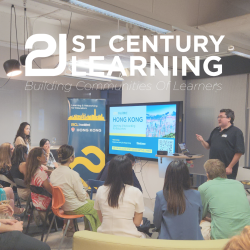
Founded in 2014, 21C Learning (21CL) organizes top-tier annual conferences and online events that align with its mission of “Building Communities of Learners”. We helps K-12 schools improve their tech infrastructure and teaching practices. Our services include strategic plan reviews, onsite visits, stakeholder interviews, and surveys on tech readiness. We also offer fractional CIO/Tech Director services for cost-effective guidance and support.
3Education: Smart Queuing System
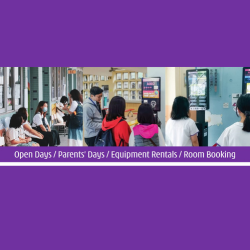
3Education is committed to assisting schools in adapting technology to cultivate self-learning ability for the new generation. We are all here to help teachers in achieving their educational goals. Empowered by 3 Hong Kong’s strongest 5G network, we provide a wide range of teaching and learning solutions to help students develop their strengths.
CENTURY Tech – Teaching and Learning Platform
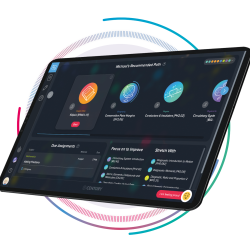
CENTURY is an award-winning teaching and learning platform for primary and secondary schools, colleges and universities. Using learning science, artificial intelligence and neuroscience, CENTURY creates constantly adapting pathways for students and powerful assessment data for teachers.
Destiny Library Manager

Follett Destiny® Library Manager, a leading software for libraries, simplifies administrative tasks while fostering a love of reading and discovery. Users enjoy a student-friendly interface and engaging experience as they explore and access exciting new resources.
Instructure – Educational Software
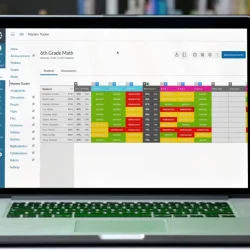
Instructure Holdings, Inc. is an educational technology company based in Salt Lake City, Utah, United States. Instructure offers a variety of systems for K-12 schools, including Canvas (Cloud-based learning management system-LMS), Mastery Connect (digital assessment management system), Impact (Streamlined Edtech Adoption for K-12) and analytics tools.
Novalearn - Simplified School Management

Novalearn Limited is an EdTech company transforming education by seamlessly integrating machine learning, studio-produced edutainment, and quality STEAM education aligned with international K-12 curricula.
Moments365 - Parent-School Communication
Moments365 is an interactive hub for K12 international schools and parents, enabling real-time sharing of students’ progress. Integrated with WeChat and Teams, it enhances communication and parental involvement, driving schools towards innovative, connected smart campuses.
Otus: Learning Management System
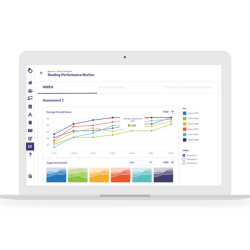
Otus provides educators with a platform that offers data-driven insights, collaborative learning, personalized professional development plans, feedback and reflection tools, and access to both internal and external professional development resources. This comprehensive suite of tools empowers educators with the knowledge and skills to excel in various areas.
PowerSchool – Software & Cloud Based Solutions

PowerSchool is a leading provider of cloud-based software for K-12 education in North America. Its mission is to power the education ecosystem with unified technology that helps educators and students realize their full potential, in their way. PowerSchool connects students, teachers, administrators, and parents, with the shared goal of improving student outcomes. From the office to the classroom to the home, it helps schools and districts efficiently manage state reporting and related compliance, special education, finance, human resources, talent, registration, attendance, funding, learning, instruction, grading, assessments and analytics in one unified platform
Renaissance Learning – School System
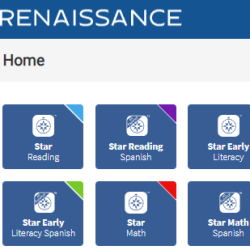
Renaissance Learning, Inc. is a software as a service and learning analytics company that makes cloud-based, Pre-K–12 educational software and adaptive assessments. Renaissance employs about 1,000 employees in nine U.S. cities and subsidiaries in Canada, the United Kingdom, Korea, and Australia.
SAM Learning
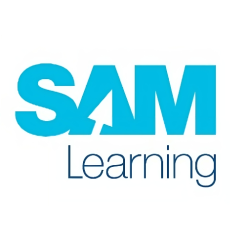
SAM Learning is the only online learning platform that provides students, parents and teachers access to thousands of learning activities for all major GCSE, IGCSE and KS3 subjects. Engineered by A.I., SAM Learning suggests 30 minutes of adapted work, every week to every student (Weekly Challenges in core subjects) and is independently proven to make students achieve on average two GCSE grades better.







